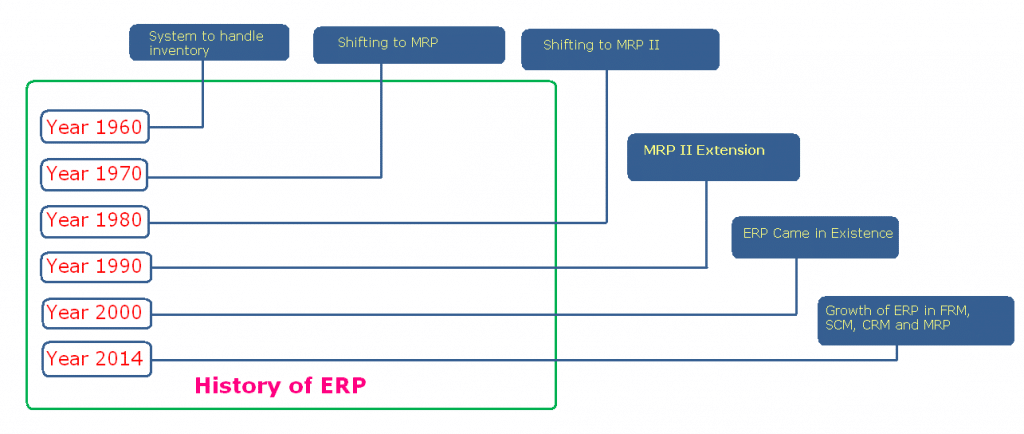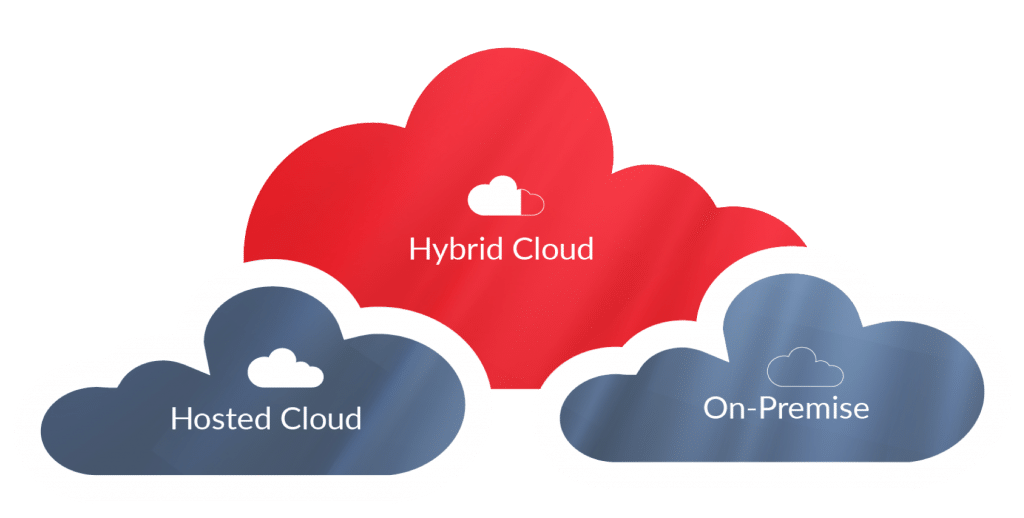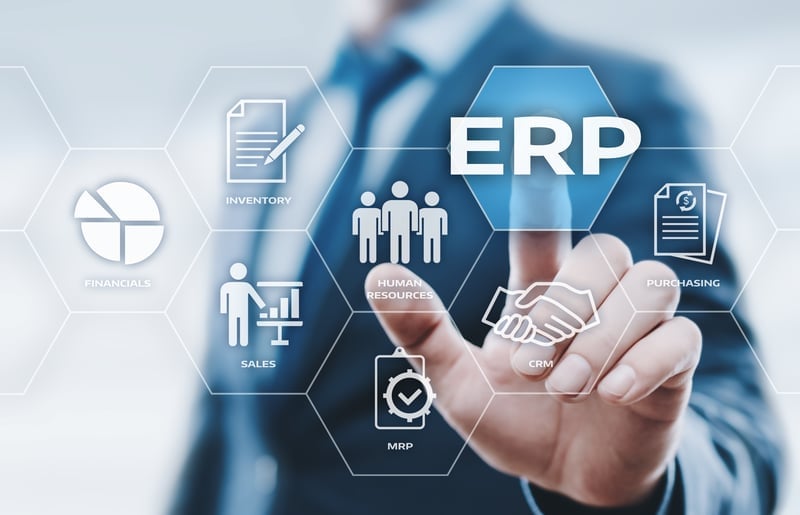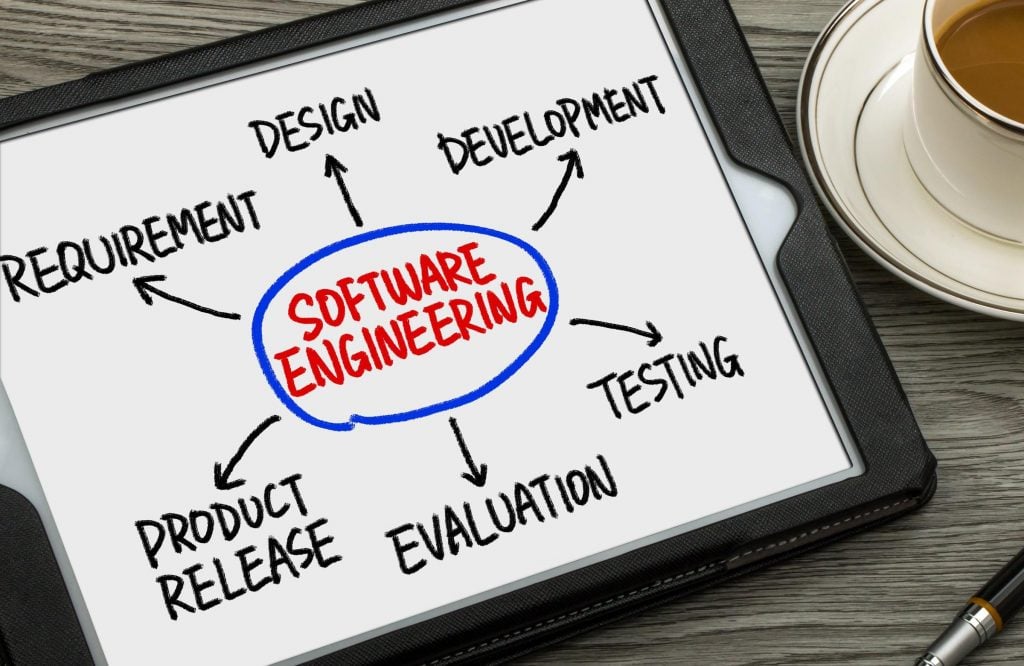What is ERP Software and What is it For Your Business?
What is ERP software? In short, ERP (Enterprise Resource Planning) is a set of software that functions to manage and integrate various operational activities in a business. ERP used to be more widely used by large-scale companies (enterprise), but now it has also been popular among SMEs. In this article, we will discuss the understanding of ERP software in more detail, complete with a brief history, types, and uses for your business.
Understanding ERP Software
ERP is a package of systems and software used by companies to manage their daily business activities, such as financial management, procurement, production, projects, human resources, and others. This system can facilitate business with real-time and accurate information, so you can make business decisions well based on the data generated. By collecting transaction data together from various sources, ERP systems prevent data duplication by providing data integrity.
History of ERP Software

The term ERP was coined in 1990 by the Gartner Group. However, the concept has actually been around since the 1960s. At that time, this concept was only applied to inventory management and control in the manufacturing sector. Software developers create programs to monitor inventory, reconcile balances, and report status. In the 1970s, this program evolved into Material Requirements Planning (MRP) for scheduling the production process.
In the 1980s, the MRP was developed to cover more manufacturing processes, thus changing its name to MRP-II or Material Resource Planning. By 1990, this system had more functions beyond inventory management and other operational processes to other back-office functions such as finance, machinery, project management, and HR. In this year the term ERP began to be used.
As the Y2K computer problem arose and the imminent introduction of the Euro, companies in the 1990s rushed to update their existing systems. Many also choose to completely change their system by adopting an ERP solution. Then, in 1998, NetSuite was founded, with the aim of creating a system that could be used throughout the company and could be operated via the internet.
In the 2000s, the Gartner Group re-developed ERP by releasing ERP II. This is the first cloud-based ERP output. This system offers a high level of flexibility, because it can go beyond the boundaries of territory and time (as long as it is connected to the internet). Now SaaS (Software-as-a-Service) ERP systems are increasingly in demand by various businesses, especially SMEs because of their high level of mobility and more affordable prices.
What Industries Can Use ERP?
Although ERP was originally designed for the manufacturing industry, now this software has expanded to various other sectors such as services, education, retail and wholesale, real estate, food and beverage, health, and even government.
Every company or organization naturally manages employees, buys products or services, sells or distributes things, and records finances. ERP allows companies from all industries to integrate and manage all of these basic functions.
What is the Use of ERP for Your Business?
Have you ever wondered why so many businesses are looking for ERP solutions? What do they need? They will not consider implementing an ERP system if this system does not have an advantage for their business. According to statistical data last year, there were as many as 81 percent of companies in the process of implementing ERP or had successfully implemented it. The following are some of the benefits that you can get by implementing ERP software in your company.
1. Optimizing Efficiency
The ERP system functions to simplify various operational activities that take a lot of time and effort. Complex tasks such as checking inventory, assigning tasks to employees, monitoring work hours, payroll, preparing financial reports, can all be done automatically.
With less manual work, the team can focus more on their work without having to bother other teams. For example, the marketing team can monitor daily web traffic reports without having to request it from the IT team, or the accounting team can make reports related to sales without having to rely on the sales manager.
ERP also provides fast data access for managers and stakeholders in the company. Decision makers can monitor key performance indicators throughout the company only through a dashboard. All required data can be generated in real time.
2. Enhancing Collaboration
Inter-departmental collaboration is a crucial part and is often needed in business. ERP software breaks down the dividing walls between departments. With data entered into a centralized and consistent ERP system, one department can access data from another department. SaaS ERP or cloud-based can expand inter-team collaboration in all branches of the company through the internet.
3. Save on Operating Costs
ERP also helps companies save on operational costs. Because most operational activities are automated, various disruptions, obstacles and damage can be anticipated well. All complex work can be completed faster so this can reduce lead time. Companies can also reduce labor costs, because ERP is able to take over various manual jobs.
4. Improve Data Security
ERP has a firewall and control restrictions to prevent data breaches. All data is stored in a centralized system so that access points can be monitored closely and security is maintained. Admins who are responsible for managing company data can provide limited access rights to employees. For example, the HR manager can hide important data only for himself and the stakeholders while giving employees the right to access their respective financial data.
Admins can also quickly terminate the access of dismissed employees and grant access rights to new employees. The ERP solution also shows user activity, so the admin can easily identify unauthorized actions or suspicious activity patterns in the system.
5. Make accurate business forecasts
One of the most crucial things for business progress is the right forecast. Stakeholders in the company rely on reports to make forecasts that will ultimately influence the decisions they make. Therefore, it is very important for businesses to get real-time, complete, and consistent reports. ERP solutions can facilitate all of that.
Reports in the ERP system use sophisticated analytics and filters that can filter out inconsistencies in the data. This system also ensures that the data obtained is generated at the correct time. Accurate business reports will help stakeholders produce the best decisions for their business.
When Should You Decide to Use ERP?
Every business is unique and has different challenges. The question now is, when should you decide to use ERP? The following are some parameters that indicate that you should consider using an ERP system as soon as possible.
- Your staff spends too much time on tasks that should not have been done manually
- You don't have quick and easy access to the data you need to make business decisions
- You work with various vendors or suppliers from various regions
- You have many different applications that you have applied to your business for years, but they are not connected to each other
- You cannot monitor your inventory level every day
- You spend too much time searching for information, trying to increase productivity and efficiency, and integrating various functions in your business
- Your staff cannot easily collaborate or share information with each other
- You cannot access important business data and information while outside the office
- You are often late when you resolve problems; in other words, you cannot be proactive in identifying problems in your business processes
If most of the points stated above are relevant to you, then this means it's time for you to immediately find the right ERP vendor.
Types of ERP software development

There are several types of ERP development that are trending on the market today. So you don't get confused when ERP vendors offer you this solution, try to study the following three types of popular ERP development.
On-Premise ERP
This is also called conventional ERP or on-site ERP. This ERP system is installed locally on computer hardware and servers managed by IT staff. So, the company manages this ERP system in-house.
Initial investment for conventional ERP is fairly high, because companies need to buy hardware such as servers to run the system. The company must also employ IT staff who are responsible for managing and maintaining the system. In addition, upgrading this system also requires a lot of effort, because the team has to deploy on multiple computers and re-implement various adjustments and integration with systems that have been used before.
Although it requires a lot of cost and effort, conventional ERP solutions are still in great demand because this system allows companies to handle their own data thereby ensuring security. In addition, this system also offers convenience for customization and gives more control over the implementation process. Conventional ERP solutions are usually more popular among large scale companies.
Cloud ERP
Cloud-based ERP system or also called SaaS is a type of ERP that allows companies to manage data centrally through an internet connection. ERP vendors are responsible for the smooth running of this system and oversee it through the backend. Users only need a username and password to be able to access the system from the browser.
The investment costs for Cloud ERP are much lower compared to conventional ERP investment costs. However, users are charged overhead (usually per month) that must be paid as long as they use the system. This ERP system is more popular among small and medium scale businesses. The advantages of Cloud ERP include the following:
- Faster Deployment
Unlike on-premise ERP, Cloud ERP does not require additional hardware so companies do not need to waste time on procurement and installation of IT infrastructure. The time to install a cloud-based ERP usually only takes 3-6 months while a conventional ERP solution requires at least 1 year.
- Periodic System Updates & Upgrades
Cloud-based ERP systems are constantly being upgraded by their providers and you can be sure that you always use the latest and most up-to-date ERP systems. Meanwhile, if you are using a conventional ERP system, updates and upgrades must be done by removing adjustments that have been used before.
- High Level of Mobility
Cloud ERP solutions allow you to keep an eye on your business anywhere and anytime. Because this type of ERP is website-based, users can access the system through supported browsers. You do not need to come to the office to see the various data that you want, because you can access it from your cell phone or tablet.
Hybrid ERP
Hybrid ERP is a combination of on-premise ERP and Cloud ERP and ERP solutions. This type of ERP system serves as a logical solution for many companies who want to improve their current conventional ERP system without having to change it. In addition to separating functions between conventional and cloud-based ERP, Hybrid ERP also helps companies to integrate or add functions to existing ERP systems at a minimum cost.
Common Modules in ERP Software

You have understood what ERP is and what kind of development and usability. Now you need to know what modules are usually available in ERP in general.
Accounting (Accounting)
The accounting module functions to manage cash inflows and outflows within a company. The module also helps companies handle various accounting transactions such as expenses, balance sheets, ledgers, bank reconciliation, budgeting, tax management, and others. Company financial statements can be made with just a few clicks with this module.
CRM
The CRM (Customer Relationship Management) module helps improve sales performance through better customer service and build healthy relationships with customers. This module also helps companies manage and track prospect and customer information such as communication history, calls, meetings, transaction data they do, duration of contracts, and others.
HRM
The HRM (Human Resource Management) module helps improve the efficiency of the HR or HR department in the company. This module helps manage employee information such as performance appraisals, job descriptions, skills, attendance, leave, and others. Payroll Management is one of the most important sub-modules in the HRM module that functions to manage salaries, travel expenses and cost recovery.
Sales
This module functions to handle sales workflows such as sales questions, offers, sales orders, and invoices. The integration of Sales and CRM modules can speed up the sales cycle and generate greater profits for the company.
Inventory
The inventory module is useful for tracking and managing stock in a company, including monitoring inventory levels, scheduling replenishment, forecasting and making inventory reports. A good ERP system allows integration of inventory modules with a barcode or SKU scanner. The inventory module will be more effective if it is integrated with the purchasing module.
Purchasing
This module manages the processes involved in the procurement of goods. This includes: supplier lists, demand and supply analysis, Purchase Orders, Goods Receipt Notes, and stock updates. This module can be integrated with the inventory module for more optimal inventory management.
Manufacturing
This module functions to improve efficiency in the manufacturing process in a business, such as; product planning, material routing, daily production monitoring, and manufacturing of Bill of Materials. A good ERP system allows manufacturing modules to be integrated with barcode or RFID scanners.
Factors to Consider When Choosing ERP Software

You already know what ERP is and what this software is for your business. Now you need to know what factors you need to consider before you use ERP. The following are some things to note:
1. Your business needs
Every company has different needs. The challenges faced by your company may be different from other companies. Good ERP software can be tailored to the unique needs of every business. Make sure you understand what challenges your business faces and what solutions you expect from ERP. Describe all your needs in detail to your vendor so that you get an ERP system with specifications and features that suit your needs.
2. Vendor experience
Find out detailed information about your ERP vendor, including their experience in providing ERP solutions for various businesses. Who are their clients? What are their industries? How long has the vendor been operating? Ask for testimonials from each of their clients. If you need to ask their clients directly about the benefits they have received since using ERP software (including their relationship with vendors and the services they get from vendors).
3. Support from vendors
When you talk to ERP vendors, you should not forget to ask about what support they provide. Support is a very important element in every stage of the project, which consists of; needs analysis, project planning, implementation, configuration, training and mentoring, to post implementation. Make sure that your vendor can be easily contacted when your ERP system is experiencing problems or when you have questions about how the system works.
4. Ease of integration and customization
A good ERP software makes it easy for users to integrate and adjust it. You may not need a lot of integration or adjustment now, but your business needs can change at any time. You might want to add modules or actually reduce them in the future. As your business gets bigger, its needs become increasingly complex. So, make sure that the ERP you choose can be easily adjusted to scale your business.
5. Implementation process
One of the main factors that you need to consider when choosing ERP is the duration of its implementation. The duration of implementation usually depends on how much adjustment needs to be made. The more adjustments, the longer the implementation process. Cloud-based ERP implementations tend to be faster and simpler than conventional ERP implementations. So, think carefully about which type of ERP deployment is more beneficial for your company.
Conclusion ERP software development
In the midst of increasingly fierce business competition like now, you must be able to keep up with various rapidly changing technological trends. Running your business with the old or manual method will only make your business lag behind the others. If other business owners have automated their business processes, why haven't you?
ERP can simplify various complex business operational activities so as to increase efficiency, save costs, and optimize the productivity of your business. This software can be used by every business at various scales; both small, medium and large.
Now you know what ERP software is, its short history, its use, the type of development, the modules that are usually included, and the factors you need to consider when choosing it. Next, you only need to identify the various challenges you face and the solutions you need.
If you are still confused about the modules you need in the ERP system, don't hesitate to ask the right ERP solution provider
